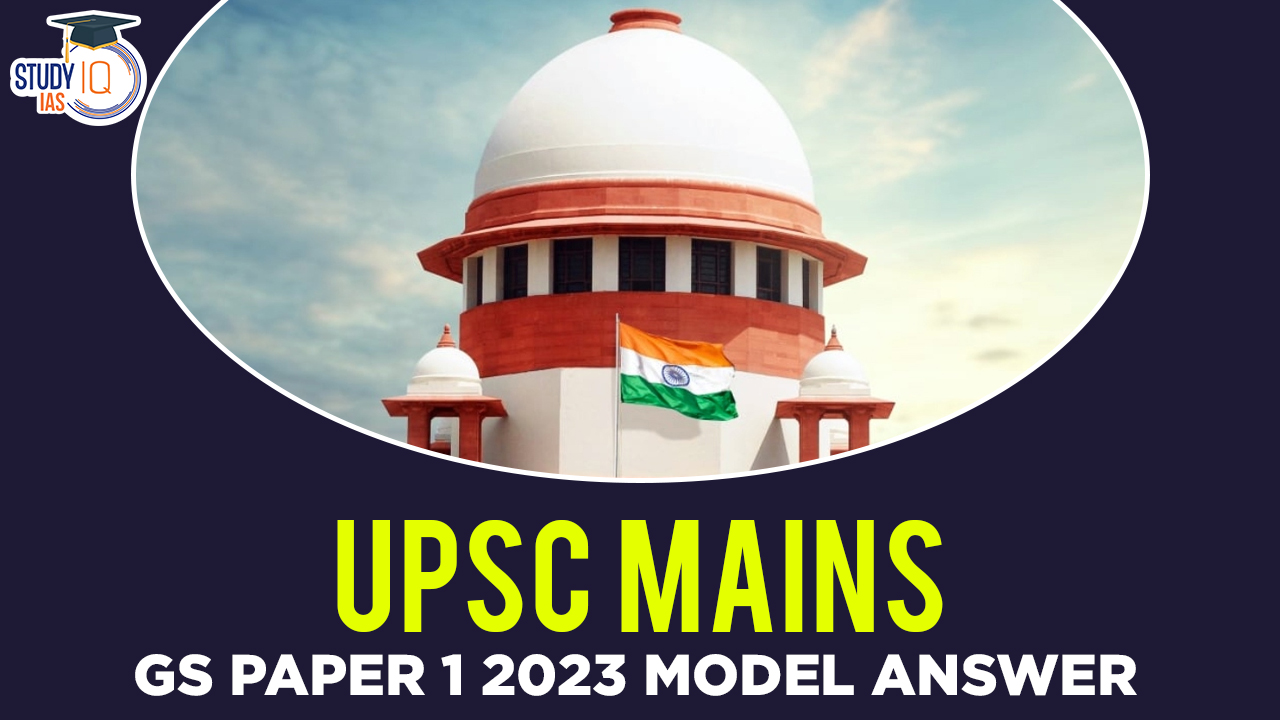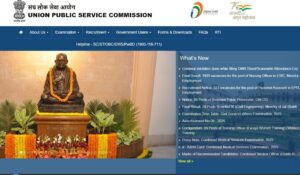Table of Contents
Q8) Do you think marriage as a sacrament is loosing its value in modern India? (10M) – Society
क्या आप सोचते हैं कि, आधुनिक भारत में विवाह एक संस्कार के रूप में अपना मूल्य खोता जा रहा है? (उत्तर 150 शब्दों में दीजिए)
Introduction:
- Initiate your answer discussing the meaning of marriage as a social institution whereby two people begin a family.
- You may proceed further to make the introduction more India specific and the changing dynamics of marriage in Indian society post the influence of westernisation, urbanisation etc.
Body:
Marriage is considered as a sacramental institute in India as 1) unlike western culture, it is not a contract and is considered as a religious and sacred union between bride and groom which is done through religious ceremonies and rites 2) It is considered as a union b/w 2 families and not just individuals. 3) it is considered as a permanent or eternal union, between husband and wife.
In recent times, marriage as an institution is going through changes due to urbanisation, westernisation and globalisation .
Marriage is losing its sacramental value as following changes have been observed
- Form of Marriage: Due to the emergence of modern values & assertion of rights, marriage is changing its traditional forms.
o E.g.: evolution of Same sex marriages ,sologamy etc.
- Modern-day alternatives: In modern culture traditional marriage is now considered as loss of privacy, lack of individual growth etc. which encourages youth to adopt alternatives.
o E.g.: Live in relationships.
- Changing Purpose of marriage: Now, most of the people marry for companionship, emotional support and understanding.
o E.g.: They tend to believe in the ‘personal concept of marriage’.
- Decline in religious significance: During the last few decades, religious significance seems to be declining in some cases.
o E.g.: Preference for Court Marriage.
- Increasing separation and divorce rates: With rise in awareness about women’s rights, economic independence of women, the modern marriage system is no longer strictly sacrosanct.
o E.g.: Rising instances of Divorces in India.
- Spouse Selection: In modern times, people are generally free to choose their life partners.
o E.g.: Increase in use of Matrimonial sites, dating apps, etc.
- Increase in the age of marriage: In modern times, girls are getting adequate education, economic opportunities, etc. hence, the age for marriage is also increasing.
o E.g.: The recent Bill to increase the age of marriage for girls from 18 to 21.
- Desirability of Marriage: Now, the desirability of marriage is slightly declining.
o E.g. Premarital sex is not a taboo, single parenting concept etc.
However, marriage still holds substantial importance:
- Religious traditions: still hold prime importance, and arranged marriages in India are deeply rooted in religious tradition e.g. Hindu, Sikh and Muslim emphasize on the sacredness of marriage.
- Offers security and togetherness: Marriages in India provide a strong sense of security anf togetherness.
- Besides, the institution of marriage is considered as a means of emotional settlement and provides an ideal environment for raising children.
Conclusion:
While the dynamics of marriage in India are evolving, the institution itself continues to hold substantial importance. It is deeply ingrained in religious traditions, offers emotional stability, and provides an ideal environment for family life and child-rearing.
Despite changing patterns and attitudes, marriage in India has not been reduced to a mere civil contract; it remains a sacred and valued institution. The evolving nature of marriage signifies adaptation rather than abandonment of its sacramental significance in the Indian context.
Check out the UPSC Mains GS Paper 1 2023 Analysis with detailed expatiation of the topics of Mains GS Paper 1 By the Study IQ Experts.


 UPSC ESIC Nursing Officer Final Result 2...
UPSC ESIC Nursing Officer Final Result 2...
 UPSC CMS Admit Card 2025 Out: Download L...
UPSC CMS Admit Card 2025 Out: Download L...
 UPSC Study Material for Prelims & Ma...
UPSC Study Material for Prelims & Ma...





















